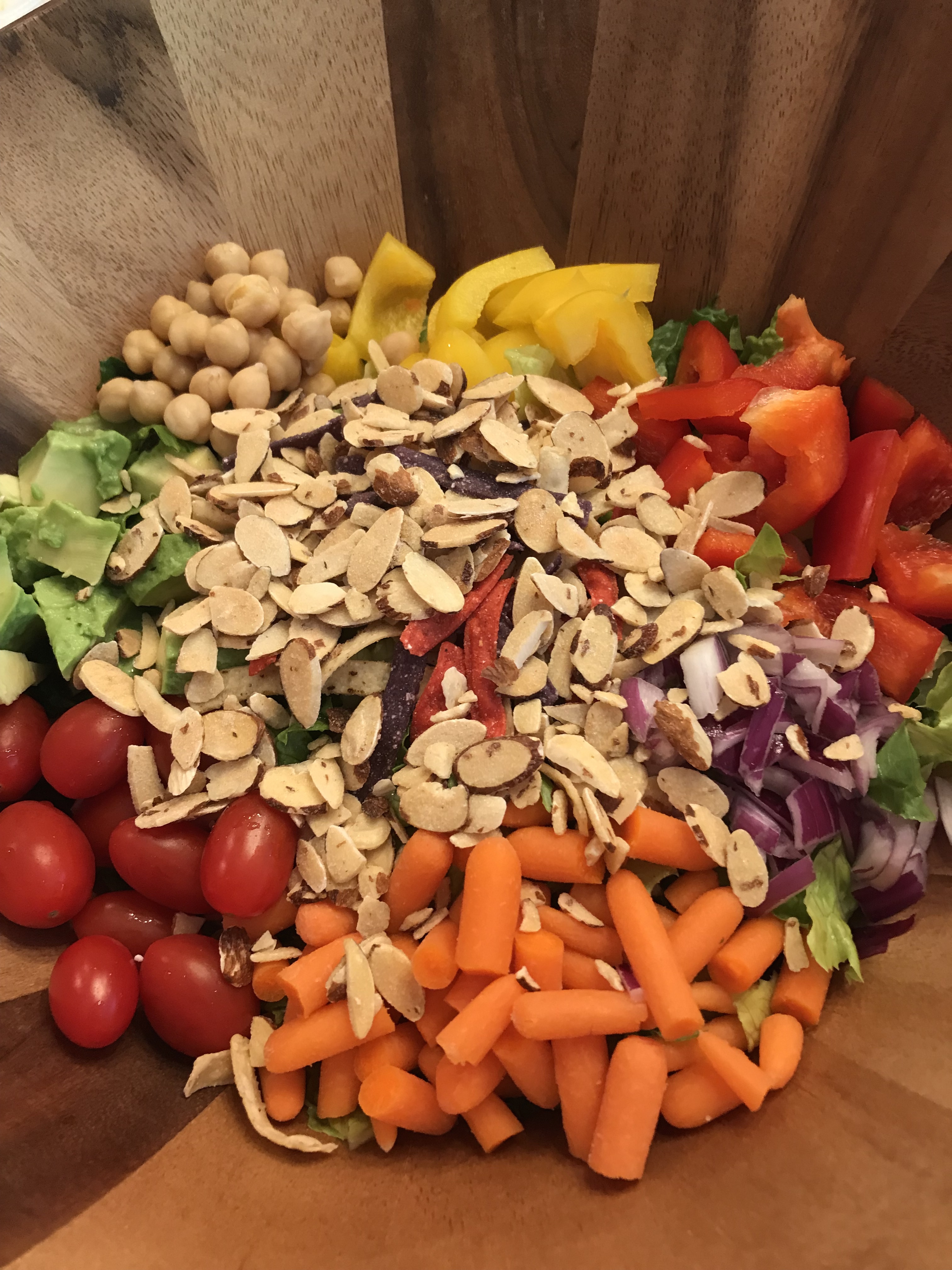THE SKINNY ON PROBIOTICS AND PREBIOTICS


my dinner last night
PROBIOTICS
By now, you have all heard about the health benefits of probiotics. Probiotics are the friendly bacteria in our gut that help improve digestion and overall health. Probiotics are also beneficial in supporting our immune health, heart health, memory and have been shown to decrease depression and anxiety. Probiotics come in supplements but are also found in food sources that are prepared by bacterial fermentation. These fermented foods include sauerkraut, some yogurts, kefir, kombucha, kimchi, natto and miso. You probably don’t recognize some of these foods because they are not in our everyday grocery stores. Kombucha is a fermented tea that has gained in popularity over the past year and you see EVERYWHERE now.. right?
Choosing a probiotic can be overwhelming because there are SO many on the market. Many probiotic supplements contain a combination of different strains in the same supplement. Our bodies contain billions of bacteria with types from over 500 different species! Research shows that different strains have different benefits based on the condition you are treating. For example, if you have diarrhea, you would not take the same probiotic if you were suffering from constipation. Speak to your healthcare provider or dietitian to determine which is the correct probiotic for you.
PREBIOTICS
We do not hear a lot about prebiotics, but I think that is going to change with the emerging research on their positive working relationship with probiotics. Prebiotics travel through our small intestine undigested and nourish all of the good bacteria (probiotics) along the way. To put it simply, probiotics are the seeds we plant in our garden. Prebiotics are the water and fertilizer that helps the seeds grow and flourish. The two work together to create a balanced gastrointestinal tract.
You can get your prebiotics in supplement form, but they are found in many common healthy foods. Examples include:
- Legumes
- Oats
- Flax seeds
- Almonds
- Banana
- Onion
- Garlic
- Jerusalem artichoke
- Skin of an apple
- Oatmeal
- Dandelion greens
- Asparagus
- Chicory root
- Barley
Hopefully you are all eating some of the above foods on a daily basis! The BEST way to get all of your prebiotics is to eat clean, whole, fresh foods. Avoid highly processed foods and diets that restrict healthy choices and focus on a diet rich in:
- colorful fruits and vegetables- 8 to 10 servings per day!!!
- whole grains
- nuts
- and legumes
IN SUMMARY, other lifestyle factors besides food play an important role in creating and maintaining a healthy gut. Examples include sleep, stress and exercise management. If you aren’t sleeping, some say all bets are off as far as good health! There are obviously health conditions you cannot avoid, but there are factors YOU can do to promote the healthiest gut possible:
- consume a diet rich in fermented foods or take the correct probiotic for you
- consume a diet rich in fresh and colorful fruits and vegetables, whole grains, legumes and nuts
- avoid highly processed foods and fast foods
- avoid fad diets that restrict fresh fruit, vegetables and whole grains
- take a probiotic during an antibiotic course (limit antibiotics)
- exercise moderately- too much exercise can actually increase inflammation in our body
- sleep, sleep and sleep
- manage your stress through exercise, yoga, meditation, deep breathing, acupuncture and massage- alternative therapies can be very beneficial to your health!
Joanne Gibson, RDN, LDN, CLT, CPT
